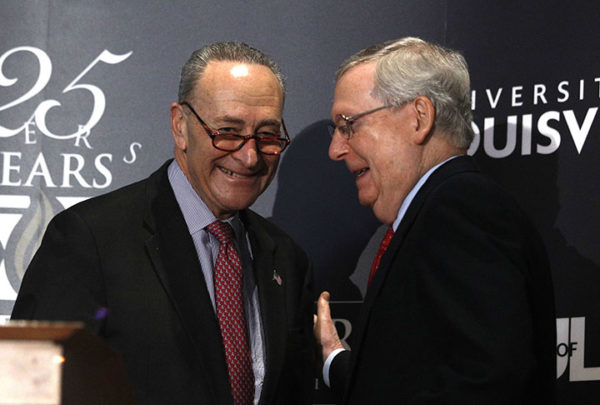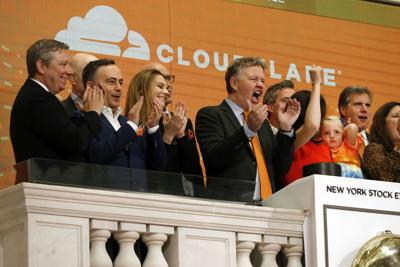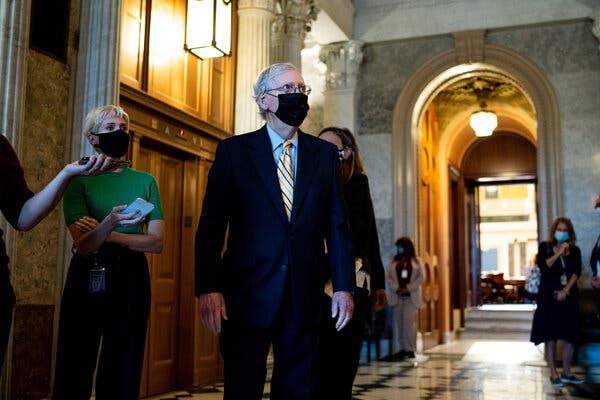
More than $65 million from groups bankrolled by secret donors poured into super PACs spending on U.S. elections during 2019 alone, according to OpenSecrets’ analysis of federal campaign finance filings. This comes on the heels of the 2018 election cycle when super PACs and hybrid PACs siphoned more than $176 million from ‘dark money’ groups, then pumped it into the midterms.Dark money groups reported spending nearly $1 billion on U.S. elections in the decade following Citizens United but that direct spending reported to the FEC doesn’t include most spending on issue ads praising or criticizing candidates. It leaves voters in the dark about who is behind millions of dollars in spending by super PACs funded by dark money groups.While super PACs are required to disclose where they get money, they can take unlimited funds from groups including tax-exempt nonprofits, which generally are not required to disclose donors so long as their primary purpose is not political. Dark money routed through super PACs adds an extra layer of insulation between political spending and the financier funding the nonprofit operation.Super PACs aligned with congressional Republican and Democratic Party leadership have already received millions of dollars from dark money groups this cycle.Conservative dark money group American Action Network gave more than $9 million to the Congressional Leadership Fund over the course of 2019. The Congressional Leadership Fund was the 2018 election cycle’s top-spending super PAC and also took in the most dark money, receiving another $26 million from American Action Network in 2018. One Nation gave $7.6 million to the closely-linked Republican Senate Leadership Fund in December 2019 on top of roughly $18.5 million in donations during the 2018 election cycle.One Nation is not among the top dark money groups disclosing spending to the FEC, but has spent millions more on digital advertising and issue advocacy ads that are largely not disclosed on top of pouring millions more into the closely-tied super PAC.These groups have deep ties to Republican Party leadership in the House and Senate while sharing office space, staff and other resources. The 2018 election cycle saw liberal dark money groups outspend their conservative counterparts for the first time since Citizens United. Millions of dollars in dark money has already poured into 2020 elections through direct spending and through super PACs bankrolled by the secretive groups. Democratic leadership-aligned Senate Majority PAC raked in $3 million from the Greater New York Hospital Association, a trade association that does not disclose its donors, in 2019 on top of $4.5 million during the 2018 election cycle.Top-spending Democratic nonprofit Majority Forward, which does not disclose its donors and is not allowed to have politics as its primary purpose, gave the super PAC supporting Senate Democrats more than $220,000 for reimbursements in 2019 following $1.4 million to Senate Majority PAC during the 2018 election cycle. Majority Forward did not exist before the 2016 election but quickly poured millions of dollars into elections and became a pivotal part of Democrats’ political infrastructure. Majority Forward is one of the top five dark money spenders during the entire decade since Citizens United after just two election cycles of spending. The biggest dark money spender in 2018 elections, Majority Forward poured $46 million into direct spending supporting candidates on the left and gave another $1.4 million to Senate Majority PAC during the 2018 election cycle. Like their Republican counterparts, Democratic Party-aligned super PACs and dark money groups share officials, office space and other resources –– blurring the line between expressly political super PACs and dark money groups that are not supposed to have politics as their primary purpose.Liberal dark money behemoth Sixteen Thirty Fund also poured more than $1.5 million to super PACs aligned with Democratic Party leadership in Congress, funneling $500,000 to House Majority PAC and at least $1 million to Senate Majority PAC.Sixteen Thirty Fund gave $290,000 to super PAC Forward Majority Action and a few smaller donations to Change Now PAC. GAO report criticizes dark money oversight:
A recent report from the U.S. Government Accountability Office concluded that campaign finance laws have not sufficiently addressed new risks posed by opaque spending. The federal oversight agency found that the issue is exacerbated by the risks posed by online political spending and foreign actors attempting to hide their interference in U.S. elections.The report’s release comes days before a rulemaking hearing today, Feb. 7, on IRS guidance rolling back donor disclosure requirements for most 501(c) nonprofits — including those that engage in political activity.Identities of donors to most 501(c) nonprofits are already kept confidential from the general public, but the rule would mean these groups no longer need to report donor identities to the IRS. Some transparency advocates have raised concerns that keeping donor information from federal government officials could hinder enforcement efforts and investigations to identify illegal foreign money flowing into U.S. elections through politically active nonprofits. The Government Accountability Office’s new report reveals that the IRS already doesn’t even check nonprofit tax records for signs of illegal foreign money in U.S. elections. IRS officials told the government oversight office that “examiners do not review the national origin of sources of donations” in nonprofit’s annual tax returns, claiming the tax agency “plays no role in enforcing” campaign finance rules governing foreign money in U.S. elections. The IRS rejects any role in policing foreign money in U.S. elections but also doesn’t share donor lists with other federal agencies tasked with enforcement, such as the Justice Department, unless there’s a court order, according to the report. Although the IRS is often the only federal agency to which politically active nonprofits are required to disclose their otherwise secret donors, the Justice Department is the agency responsible for prosecuting criminal campaign finance violations related to spending by secret donors. The Federal Election Commission has exclusive jurisdiction over civil enforcement. But ax oversight of opaque spenders spurred by unclear campaign finance rules and other impediments — staffing shortages, partisan deadlock and the FEC’s inability to pursue enforcement action without a quorum — hinder the agency’s enforcement. Responsibilities associated with policing opaque political spending and illegal foreign influence in U.S. elections are then left to other federal agencies by default. Although multiple federal agencies are tasked with oversight of nonprofits and other opaque vehicles spending on U.S. elections, this more often results in agencies pointing fingers at each other than duplicative enforcement.Justice Department officials said they face additional challenges when pursuing potential campaign finance violations related to dark money in elections since the goal is often to “hide one’s identity” so these “violations may not be readily apparent.”Clarity needed on dark moneyOne consensus shared among officials at the different agencies is the resounding need for more clarity.IRS officials said the “overarching challenge” posed by politically-active nonprofits is the “absence of bright line rules regarding what constitutes political campaign intervention” and the lack of “clear and concise guidance” on the extent to which 501(c)(4) nonprofits can engage in political campaign activities.Although 501(c)(4) nonprofits are the most prominent example of politically active nonprofits, the IRS highlighted “particularly challenging” issues with 501(c)(3) tax-exempt nonprofits — which are barred from political activity outside of voter registration — “engaging in issue advocacy near the time of an election,” noting that these efforts “can be very close to advocating for a specific candidate.”The oversight agency found that federal campaign finance law also lacks clarity on many issues regarding opaque spending, online political ads and foreign influence in U.S. elections.Those laws are “unclear and do not fully address the types of activities that foreign nationals may engage in to hide their influence in U.S. elections,” the report stated. The agency noted that campaign law does not provide a clear answer on “whether foreign actors are prohibited from engaging in issue advocacy,” types of communication that don’t include explicit language supporting or opposing a candidate. Technology also poses other unanswered questions identified by GAO, such as how the FEC’s media exemption applies to foreign media online and how ad disclaimers should apply to digital spending.
Feel free to distribute or cite this material, but please credit the Center for Responsive Politics.
For permission to reprint for commercial uses, such as textbooks, contact the Center: [email protected]
Support Accountability Journalism
At OpenSecrets.org we offer in-depth, money-in-politics stories in the public interest. Whether you’re reading about 2020 presidential fundraising, conflicts of interest or “dark money” influence, we produce this content with a small, but dedicated team. Every donation we receive from users like you goes directly into promoting high-quality data analysis and investigative journalism that you can trust.Please support our work and keep this resource free. Thank you.
Anna first joined the Center for Responsive Politics in September 2015. She works with CRP’s foreign influence and FARA data as part of the Foreign Lobby Watch Project, tracks FCC and digital political ad data, and is responsible for CRP’s politically active nonprofit and nondisclosing “dark money” group data. She holds degrees in political science and psychology from North Carolina State University and a J.D. from the University of the District of Columbia School of Law.

